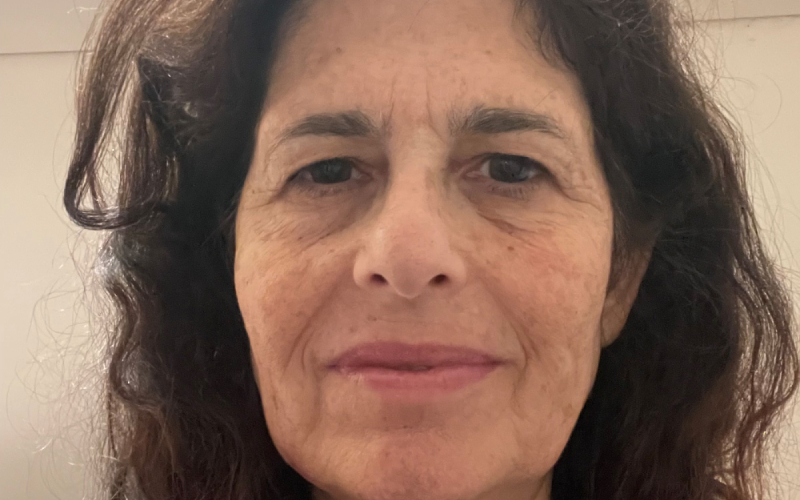“This is the first time that I really felt what is meant by cell relations. You have object relations and you have part-object relations and anxieties that are depressive and schizophrenic. But when I deal with primitive anxieties, I really felt cell relations. What I felt is that my cells were going beyond my skin and I felt that she felt that my cells were going beyond her skin. You have this diffuse transference and when you have this sort of transference it took me to prenatal life and biological life. Also, I had all those theoretical people like Tustin, Meltzer, and Bion – they were all talking about that.”

Shiri Ben Bassat
Tel Aviv
Episode Description:
Shiri shares with us her journey from immunology to psychology to psychoanalysis. She brings her knowledge of immunologic processes to better grasp the internal mechanisms of the dynamic mind. She sees a relationship between the embryo’s capacity to transform the mother’s Natural Killer cells into a receptive matrix with later capacities for psychological maturation. We consider how this informed her work with a traumatized 4-year-old girl in a tumultuous analysis that demanded a great deal from each of them. We close with her sharing her vision for the future of psychoanalysis which hopefully will include ongoing collaboration with scientists from many disciplines.
Our Guest:
Shiri Ben Bassat is a clinical psychologist and psychoanalyst with the Israel Psychoanalytic Society. She supervises at Franz Brill Mental Health Center (Ramat Chen, Tel Aviv) and teaches in various programs in the Studying Center of The Israel Psychoanalytic Institute. Shiri previously studied biology and holds an MA degree in immunology. She is the recipient of the 24th Frances Tustin Memorial Prize (2021).
Recommended Readings:
EPIGENETICS
Martin, S. (2014) R. Yehuda, N.P. Daskalakis, A. Lehrner, F. Desarnaud, H.N. Bader, I. Makotkine, J.D. Flory, L.M. Bierer, & M.J. Meaney (2014). Influences of maternal and paternal PTSD on epigenetic regulation of the glucocorticoid receptor gene in Holocaust survivor offspring. American Journal of Psychiatry 171:872-880.
Karla Ramirez , Rosa Fernández , Sarah Collet , Meltem Kiyar Enrique Delgado-Zayas , Esther Gómez-Gil , Tibbert Van Den Eynde , Guy T’Sjoen , Antonio Guillamon , Sven C Mueller , Eduardo Pásaro (2021) Epigenetics Is Implicated in the Basis of Gender Incongruence: An Epigenome-Wide Association Analysis. Front Neurosci Aug 19; 15:701017
PRIMITIVE ANXIETIES
Durban, J. (2019) ““Making a person”: Clinical considerations regarding the interpretation of anxieties in the analyses of children on the autisto-psychotic spectrum” The International Journal of Psychoanalysis 100:5, 921-939.
PRENATAL AND POSTNATAL
Meltzer, D. & Williams, M. H. (1988) 2. Aesthetic Conflict: It’s Place in the Developmental Process. The Apprehension of Beauty: The Role of Aesthetic Conflict in Development, Art, and Violence 146:7-33
Bion, W. R. (1976) “On a quotation from Freud.” In Clinical Seminars and Four Papers, Ed. F. Bion. Abingdon: Fleetwood Press, 1987.
Joanna Wilheim (2004) The trauma of conception. Presented at a Meeting of the Brazilian Society of Psychoanalysis of São Paulo (SBPSP) on October 7, 2004.
Trnsformation of the mother’s immune system. Mandelboim, O. et al’ (2006). Decidual NK cells regulate key developmental processes at the human fetal-maternal interface. Nature Medicine 12: 1065 – 1074.

Interesting point of view. Can you tell me please where can I find Shiri Ben Bassat’s paper? Thank you!
Thank you so much for sharing this
I m very interesses in this subject
Interesting podcast